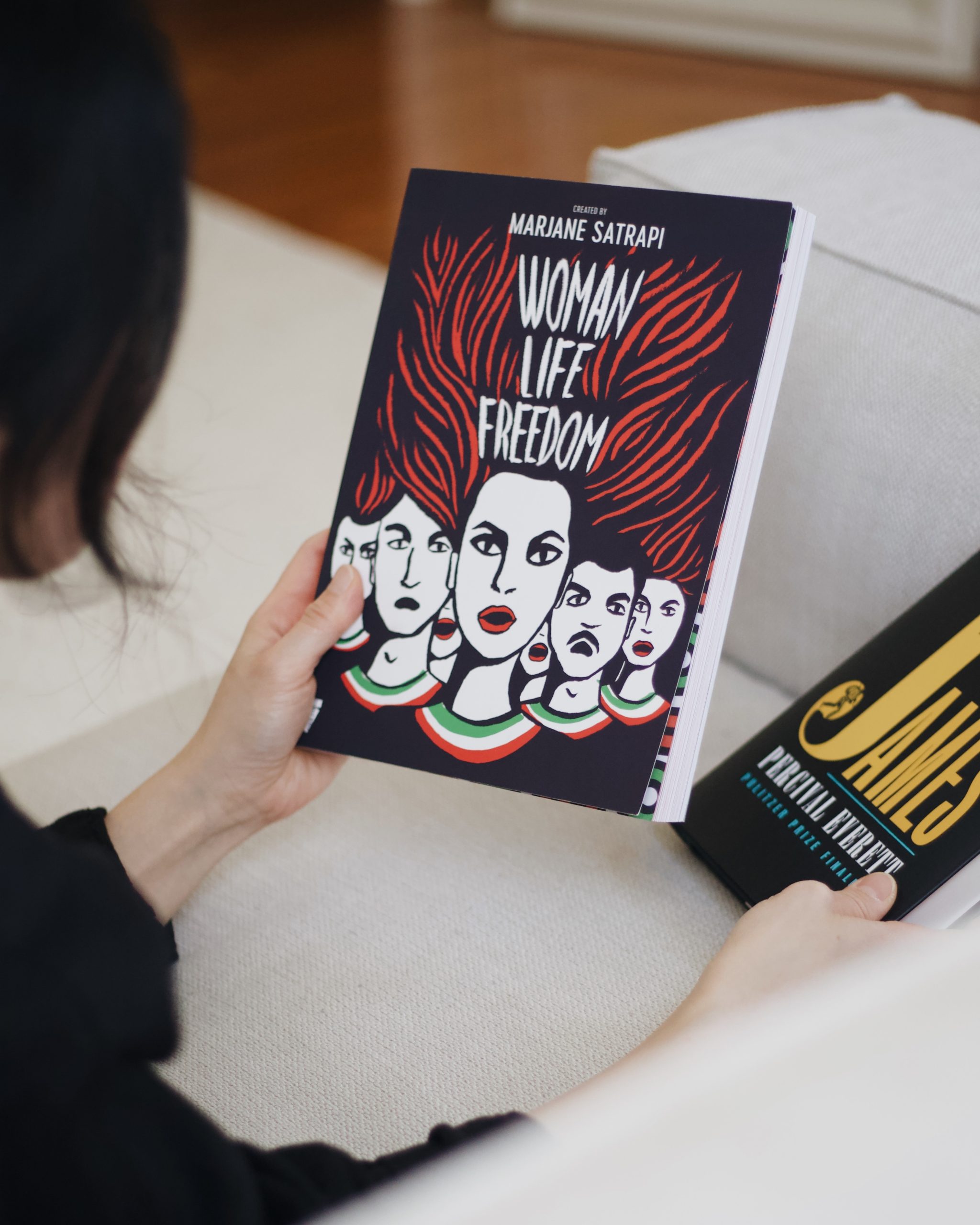Each book in the Boxwalla October Book Box invites you to explore our reality(ies) in a new way. Three brilliant writers – each with their unique writing style and tendency to make the familiar unfamiliar – offer a chance to look at the world in ways we may not usually do. The Book Box features selected writings of Jorge Luis Borges, a literary legend and trailblazer, in Everything and Nothing. It also includes the latest original collection by a contemporary legend, Anne Carson – Wrong Norma. Here, however, I want to talk about Thuận. I read Elevator in Sài Gòn, then immediately read Chinatown, and am convinced Thuận deserves the title of a literary legend.
I devoured Elevator in Sài Gòn and Chinatown in one sitting – each. Both books are slim, barely 200 pages, and the unraveling of the stream of consciousness narrative that is the voice of both stories make it impossible for you to tear your eyes away. Very much like how difficult it is to stop your thoughts from spiraling – another way to describe both books: an unraveling of thoughts, of reality. I’ve been much slower, however, in writing about Thuận for Boxwalla. It’s been about a month since I read Elevator in Sài Gòn, and then Chinatown immediately afterward. But the past month was also one where a lot of us felt the pressing need to find some distraction for a respite from reality. The narrators of both books, both Vietnamese women living in France at the time of the novel, do not allow you to look away, to seek respite. Instead, they slice open their brains and invite you to look inside as their thoughts form, travel, and transform.
Elevator in Sài Gòn opens with the narrator returning to Saigon to attend her mother’s funeral. They are estranged, and it’s been years since she’s been back to her home country. Her mother’s death is a bizarre accident: she falls down an elevator shaft at the opulent house her son recently built. The narrator arrives in Saigon to an elaborate funeral her brother has planned for their mother. For him, the funeral, styled like Kim Jong-il’s, is another business opportunity, as his housewarming was. The narrator discovers an old photograph stitched into her mother’s journal. The photo is captioned: “Paul Polotsky, 1954, 21 avenue de Suffren, Paris”. To make sense of her mother, to finally understand who she really was, the narrator sets out on a hunt for Polotsky. In Chinatown too, the narrator tries to make sense of her reality, to understand another kind of “estranged” family member: her ex-husband, Thụy. But it is most difficult, maybe impossible, to understand those closest to us. Still, we spend whole lives trying to do just that; to make sense of those around us to better see who we are.
But who are the respective narrators’ mother and ex-husband, really? The narrator’s mother in Elevator in Sài Gòn played many roles. She lived through radical, violent changes, saw her country turn from communist to capitalist, and people turn with these changes. She was a political prisoner during the Vietnam War, “Mrs. Deputy Secretary of the Party Committee”, “Mrs. Vice Head of the Local Civil Unit”, and “Mrs. Socialist New Wife”. In a way, she had to be all of this. After all,
“It is a truth universally acknowledged, that in Vietnam your local police have better and more detailed knowledge about your life than you do yourself.”
In Chinatown, no one apart from the narrator is interested in knowing who Thụy is. In the 1970s, before the Sino-Vietnamese War, being ethnically Chinese in Hanoi meant you were an outsider, someone dangerous. So dangerous that as a child your peers and teachers had to keep close watch of him to ensure he wasn’t a spy, had to not talk to him in case he was one. The narrator befriends Thụy in school. Eventually, they are married. After their son, Vinh, is born, Thụy leaves his family for Chợ Lớn, Saigon’s Chinatown (and the largest Chinatown by area in the world). The narrator and Vinh eventually move to Paris. It’s been twelve years since Thụy left the narrator, though he has a relationship with Vinh. The narrator cannot know who Thụy is any more, if she ever did know him at any time. She imagines him walking out, the way he travelled to Chợ Lớn, over and over. The narrator’s fantasies fill in the gaps left in the wake of her search for meaning. The whole book, in fact, is a mostly uninterrupted stream of thoughts the narrator has while she and Vinh wait in a train on the Paris metro while a duffel bag is being checked for explosives. The narrator’s thoughts dart back and forth, sink and emerge, go round and round and take us with her. When you are spiraling, reality and fantasy are meaningless distinctions – you just want to reach the end of your thought, to lead it to its conclusion, even if this opens up more and more memories and thoughts and fantasies.
What is reality, anyway? When the narrator in Elevator in Sài Gòn observes her mother’s corpse, she is struck by how her mother managed to protect her face despite the fall. Something about the whole process seems staged to her, like her mother is still performing. In fact, for the narrator, most of what she observes around her feels contrived. Her reality is as unreliable as her fantasies, so why rely on either?
Arriving at meaning is not the goal for either narrator. For the narrator in Chinatown, she places her hopes in Chợ Lớn, a place which she will never go to. For the narrator in Elevator in Sài Gòn, it is the name Paul Polotsky. If the outside world can provide only a fragmentary version of meaning, you can create a more peaceful one inside.

Let’s Talk about the Last Month/Year
How do you write about two books where you are plunged deep into the narrators’ brains and witness all their thoughts forming and unraveling, when you are trying your best not to think yourself? It has been comforting last month, and a lot of last year, to retreat into a world of my imagination to keep the world out. The narrator’ searches for meaning in many ways reflected my own. In 2024, I went back home for the first time since I immigrated to the US. It was also the first year we had family visiting. All of this year, I have wondered where I belong, if I have a home and, if so, where and who is it? The elections did not help in answering my questions of who I am, and where I belong. Neither did the videos of people being killed in other parts of the world that popped up daily on my social media feeds in between pictures of people celebrating and ads for every thought I’ve had. The same principles that governed colonialism are being enforced on the other side of the globe while I lived in the country that was somehow involved in all of it. At the same time, I enjoy living in this country, I can never go back to my home country for a stream of reasons that will reveal a lot about me, just like Thuận’s narrators.
Reader Reviews
Our Boxwalla Book Box subscribers, however, talk about Thuận and Elevator of Sài Gòn eloquently:
literary.infatuation wrote: “Another amazing selection by @theboxwalla, Elevator in Sài Gòn by Thuận, Nguyēn An Ly has the virtuosity and suspense of Patrick Modiano, coupled with that feeling of being suspended in between realities of the immigrant experience. I absolutely loved it.”
jenn_bookfiend, whose book reviews I always look forward to, says: “True answers seem less important than the journey ignited by the questions. This is an immigrant story about the unknowableness of others and the ways in which we carry the past, even if it is not our own. It is a story about intersections and paths that cross, language and interpretation, identity and displacement, the ideological differences between Communism and capitalism.”
For the characters in Elevator of Sài Gòn and Chinatown, there is no belonging, only an endless search for meaning. Reality has too many aspects to be understood in any way; you have to keep searching. Thuận centers a perspective that ” for English-language readers, accustomed as we are to portrayals dominated by the lens of the American-led war, Elevator in Sài Gòn is a thrilling change of orientation.” It also shows all of us that we are not alone in our fruitless, relentless search for meaning.







